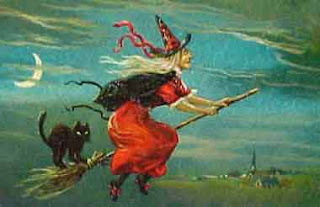Well, the rabbit is out of the hat and in full view of the audience. I’d been keeping quiet about the subject of the new biography until everything was signed and sealed, but Melvyn Bragg mentioned it in his BBC Radio 4 programme and newsletter - so now everyone knows that I’m writing about Norman Nicholson!
So, who was Norman Nicholson? An obscure northern poet, from the small town of Millom in Cumbria, born in 1914, a protegee of T.S. Eliot and the Lake District’s second most famous poet after Wordsworth. 'Poem' is NN’s working manifesto.
Poem
I would make a poem
Precise as a pair of scissors, keen,
Cold and asymmetrical, the blades
Meeting like steel lovers to define
The clean shape of the image.
I would make a poem
Organic as an orchid, red
Flowers condensed from dew, with every lobe
Fitted like a female to receive
The bee’s fathering head.
I would make a poem
Solid as a stone, a thing
You can take up, turn, examine and put down;
Bred of the accident of rain and river,
Yet in its build as certain as a circle,
An axiom of itself.
I was approached recently by the Trustees of the Nicholson Estate to write a Life and Work for the Norman Nicholson centenary in 2014. This isn’t a commercial project, more a labour of love - I’ve always loved NN’s poetry - he wrote about the landscape I grew up in - a working landscape, not the pretty picture postcard views sold to the tourists. His best poems are probably Wall, Sea to the West and On the Dismantling of Millom Ironworks, which is about the brutal de-industrialisation of the north of England in the second half of the twentieth century. This is an extract:
‘They shovelled my childhood
On to a rubbish heap. Here my father’s father,
Foreman of the back furnace, unsluiced the metal lava
To slop in fiery gutters across the foundry floor
And boil round the workmen’s boots; here five generations
Toasted the bread they earned at a thousand degrees Fahrenheit
And the town thrived on its iron diet. On the same ground now
Split foundations moulder in the sea air; blizzards
Of slag-grey dust are blown through broken Main Gate uprights;
Resevoir tanks gape dry beside cracked, empty pig-beds:
And one last core of clinker, like the stump of a dead volcano,
Juts up jagged and unblastable.....
He lived all his life in the house he was born in - stubbornly defending his northernness - always a fierce enemy of Metrocentrism. When anyone referred to him as a recluse he would say drily ‘They mean I haven’t been seen lately in London.’ People like Philip Larkin denigrated him as a 'Provincial'. He was emphatic about the truth of Robert Frost’s statement ‘In order to be universal, you must first be provincial’.
I’ve only just embarked on the initial research and will keep you posted. This will be the first time I’ve ever talked publicly about writing a biography, so it will be a new experience!
For more Poetry please check out the Tuesday Poets at www.tuesdaypoem.blogspot.com






































